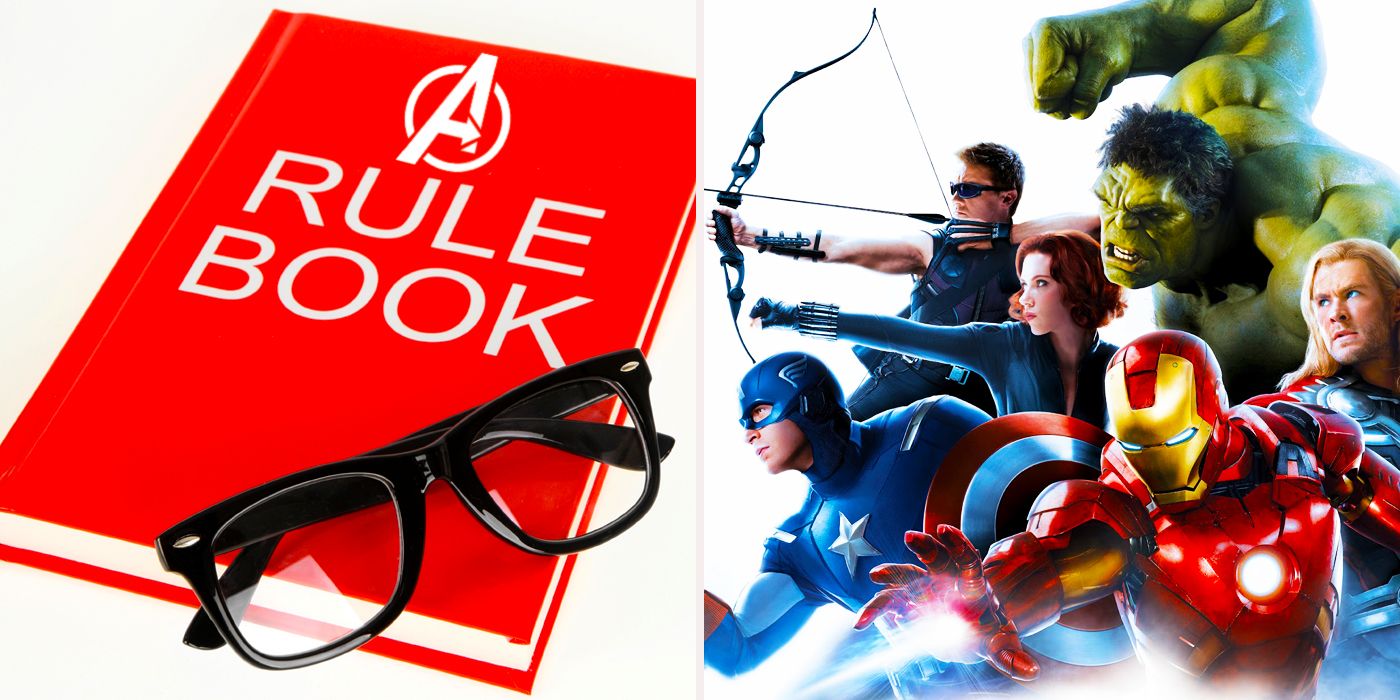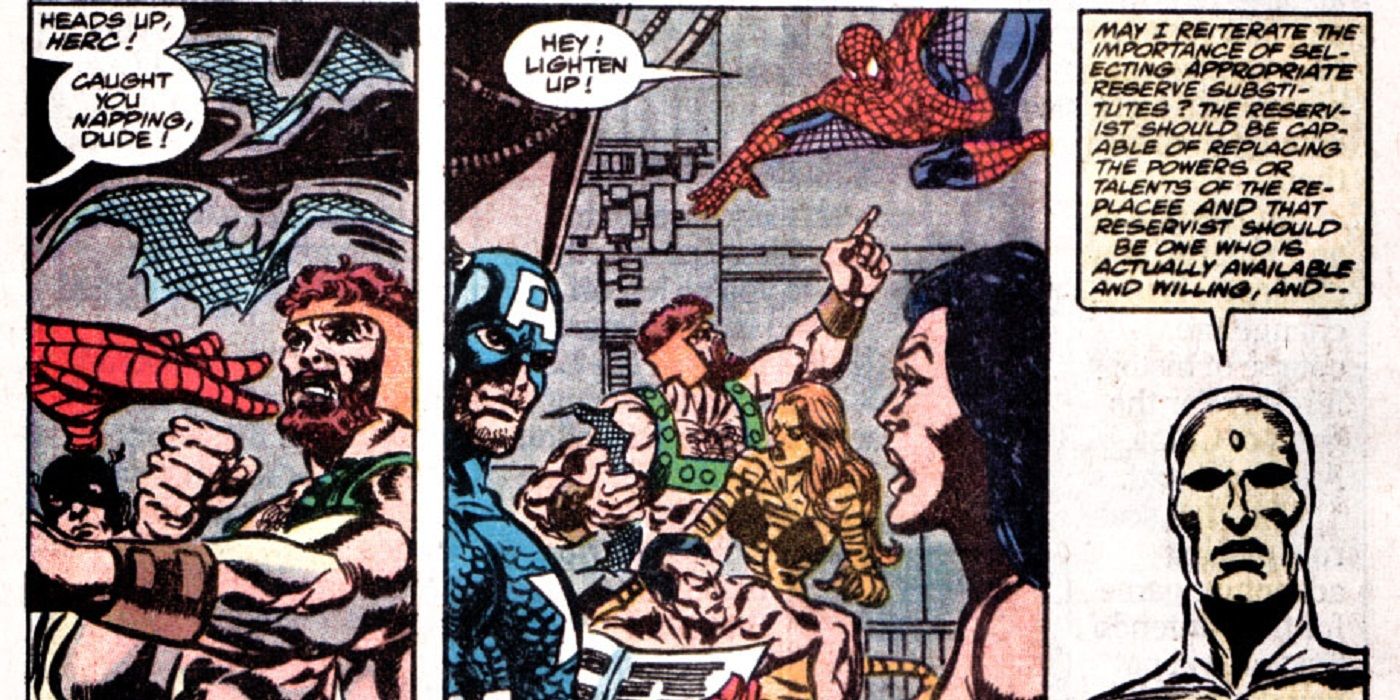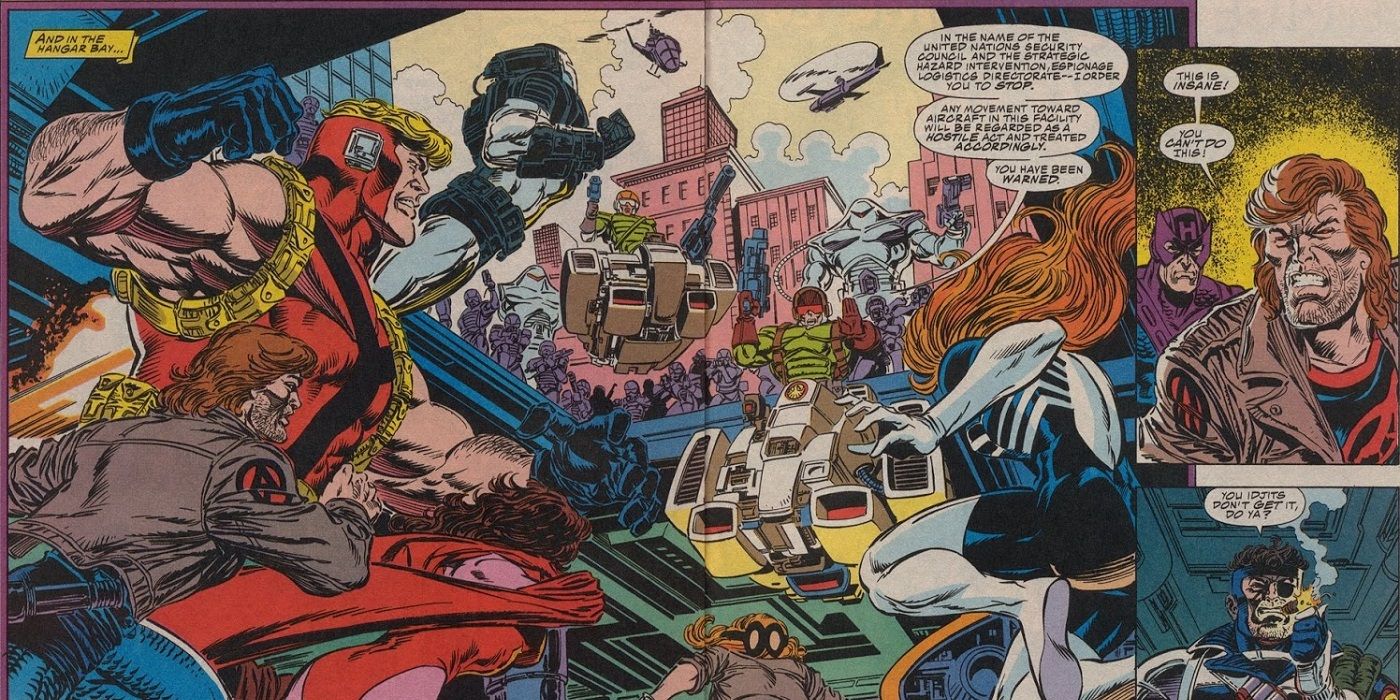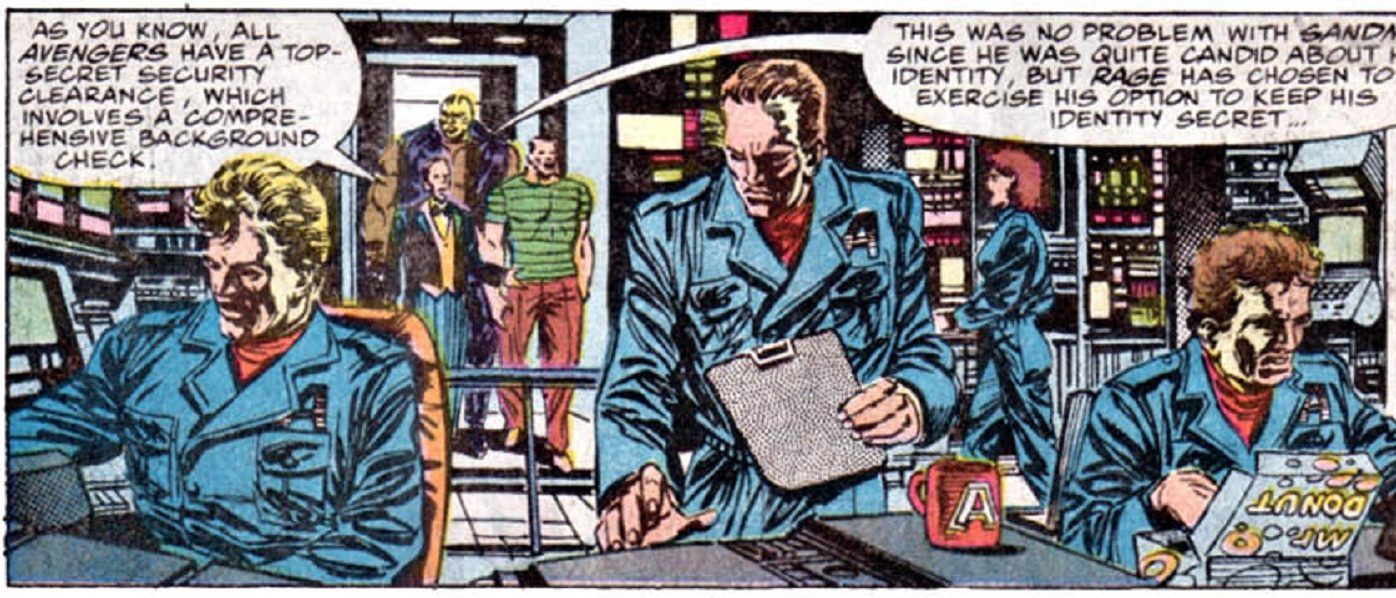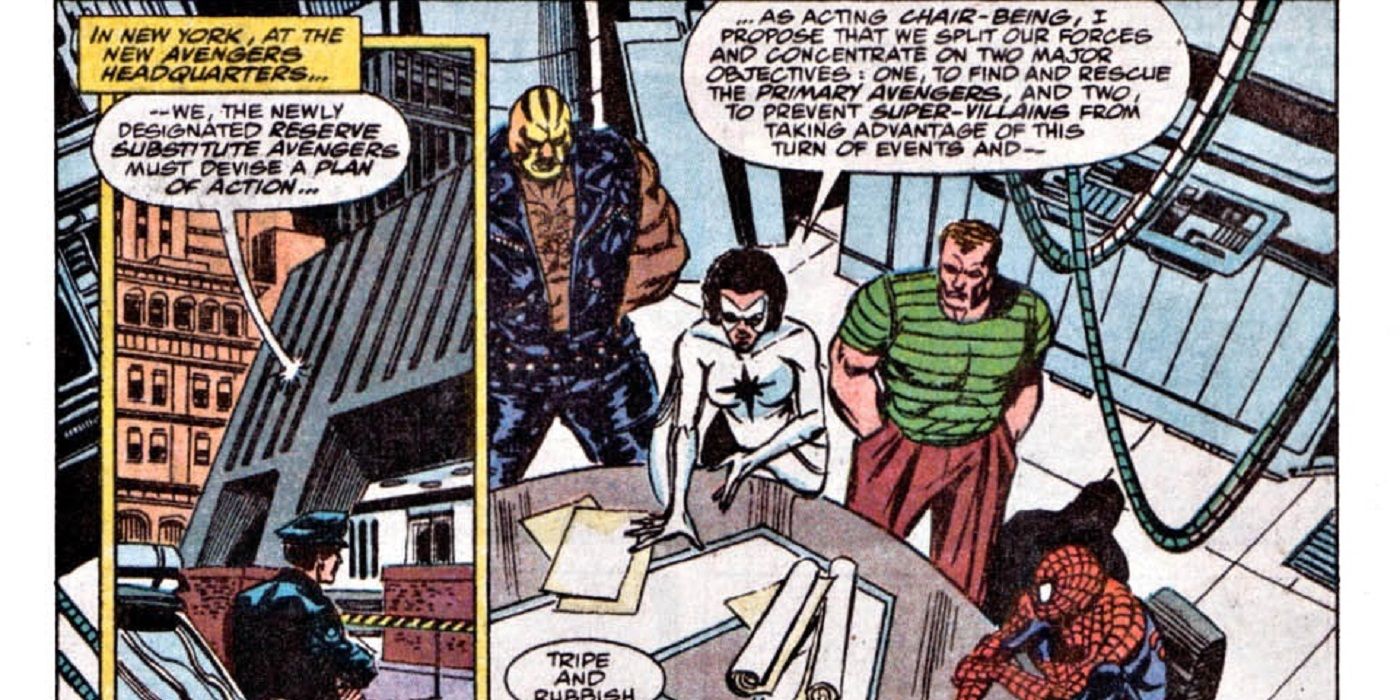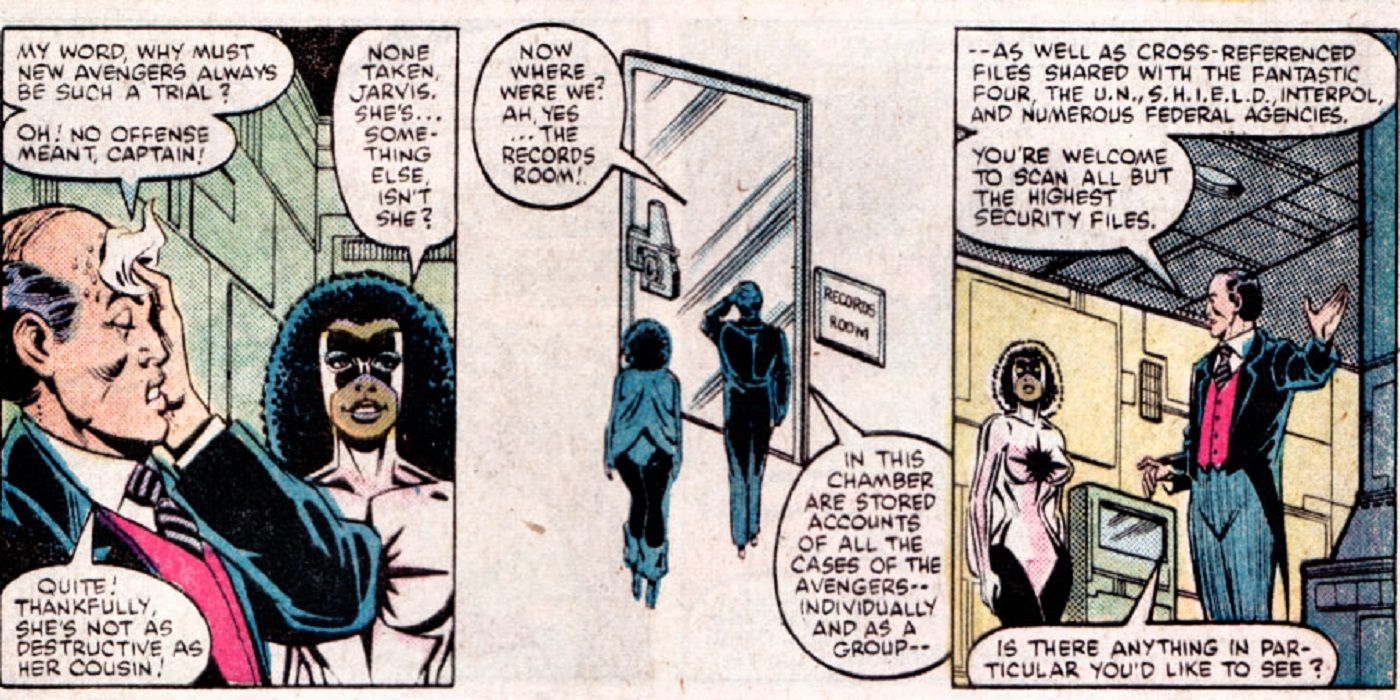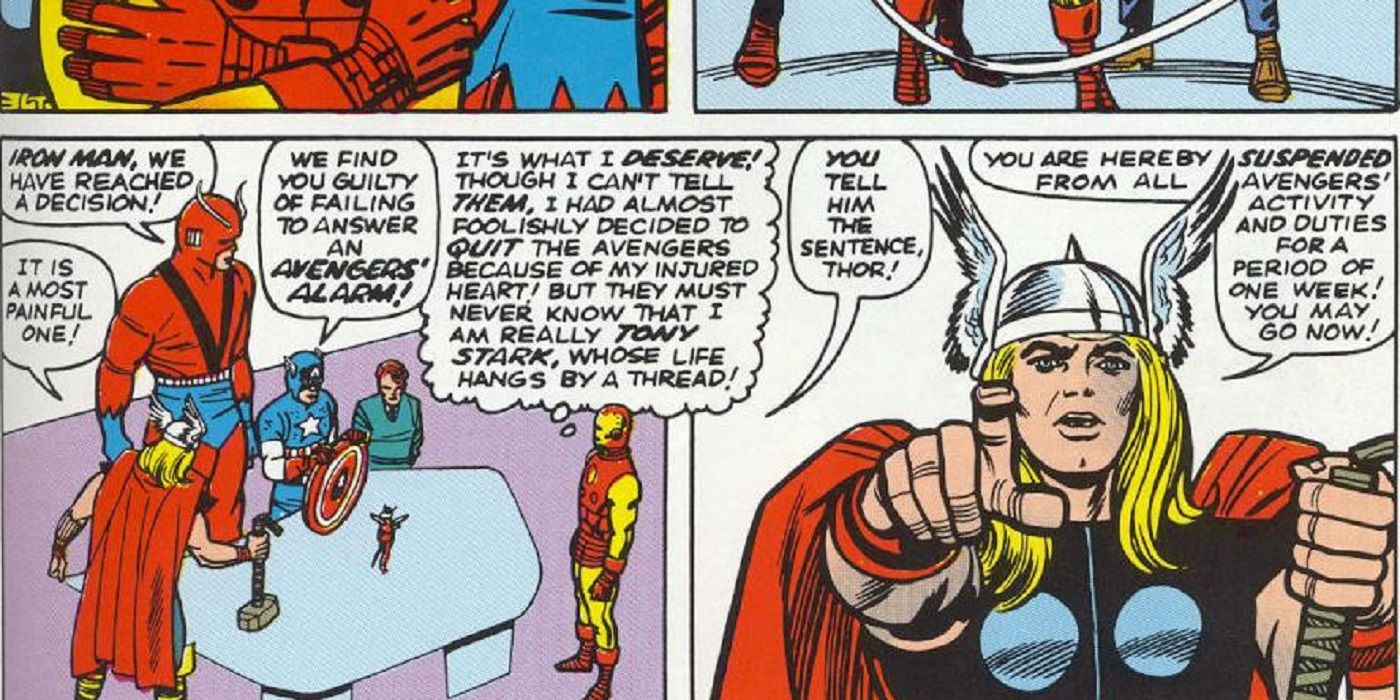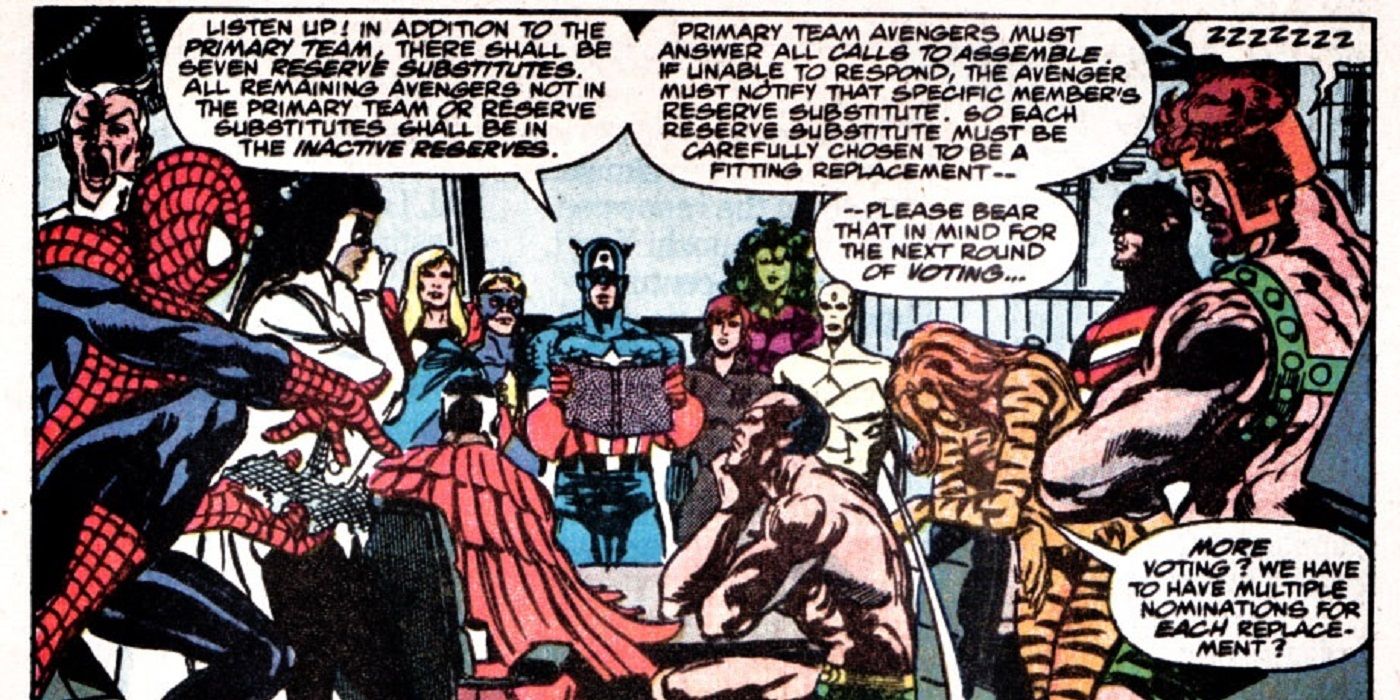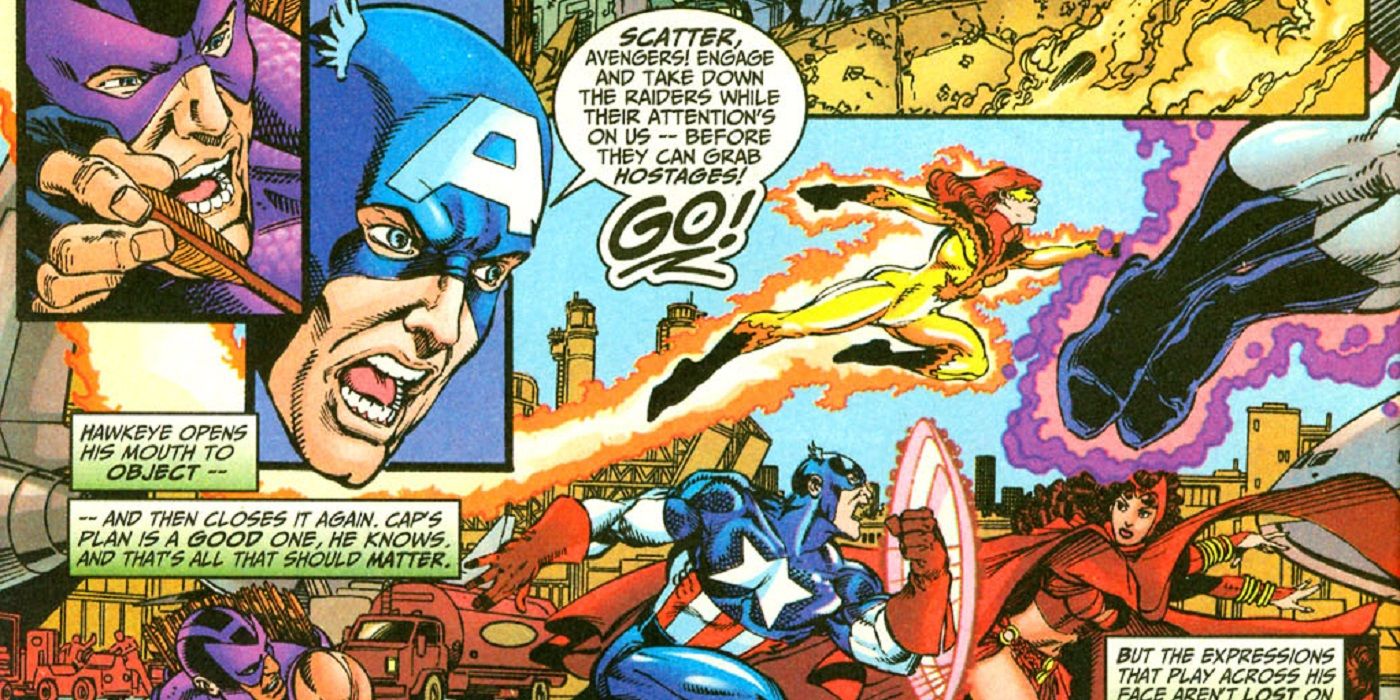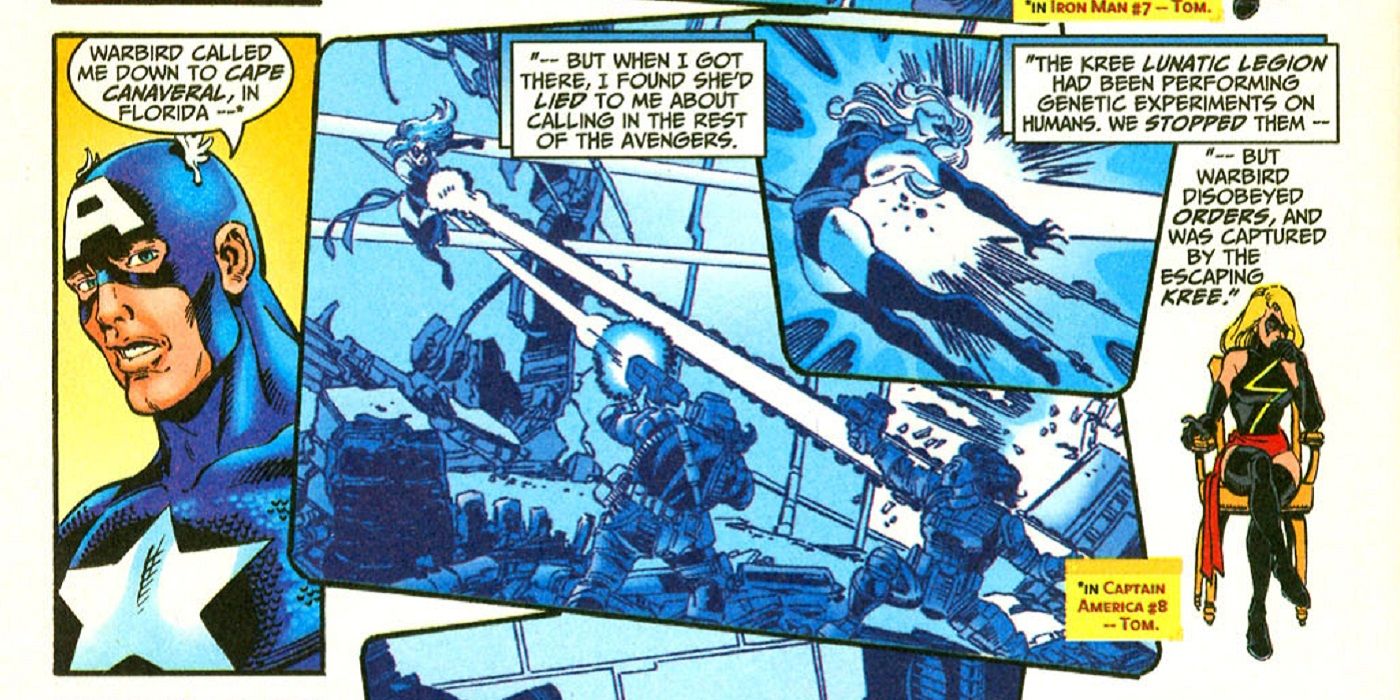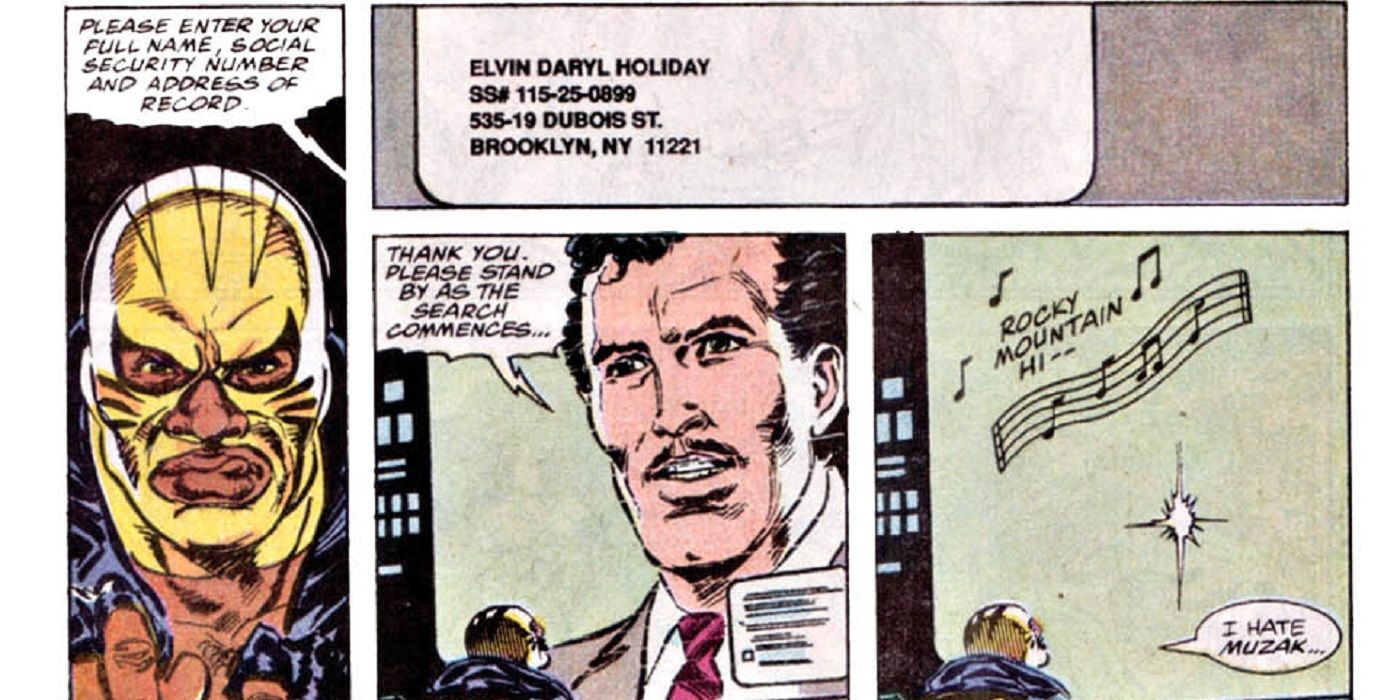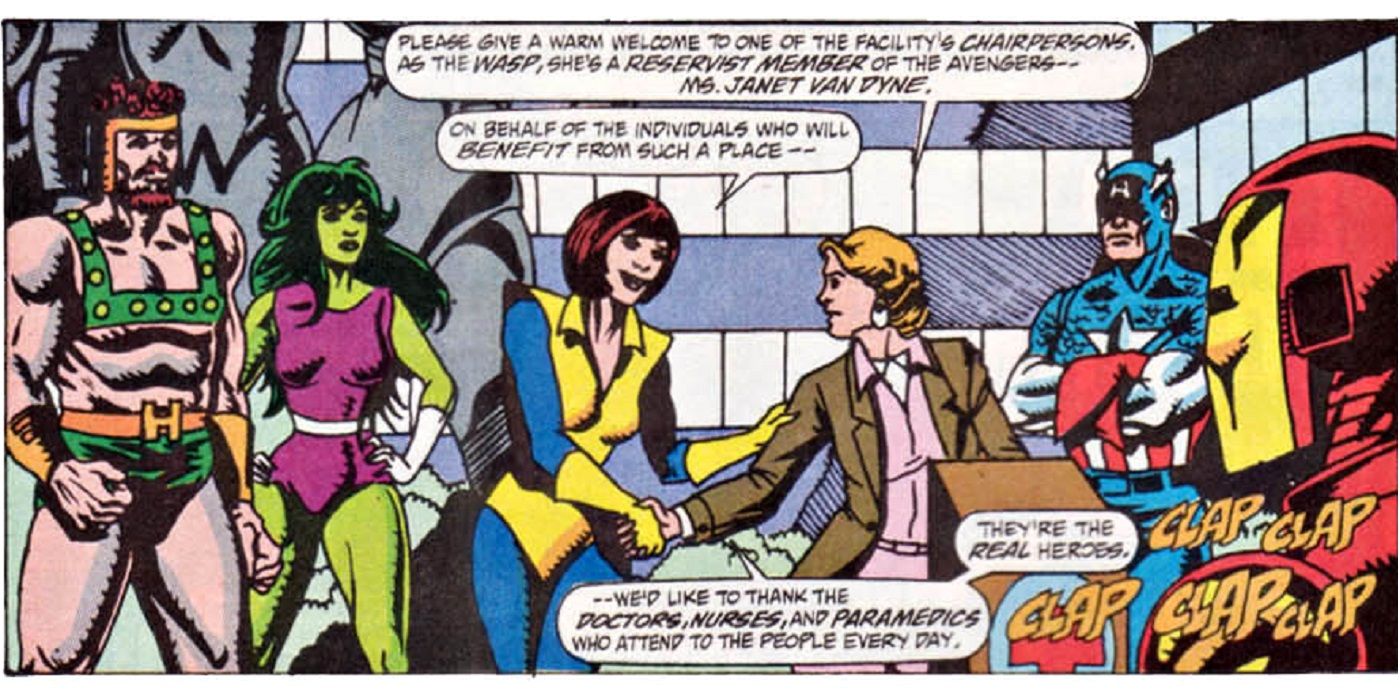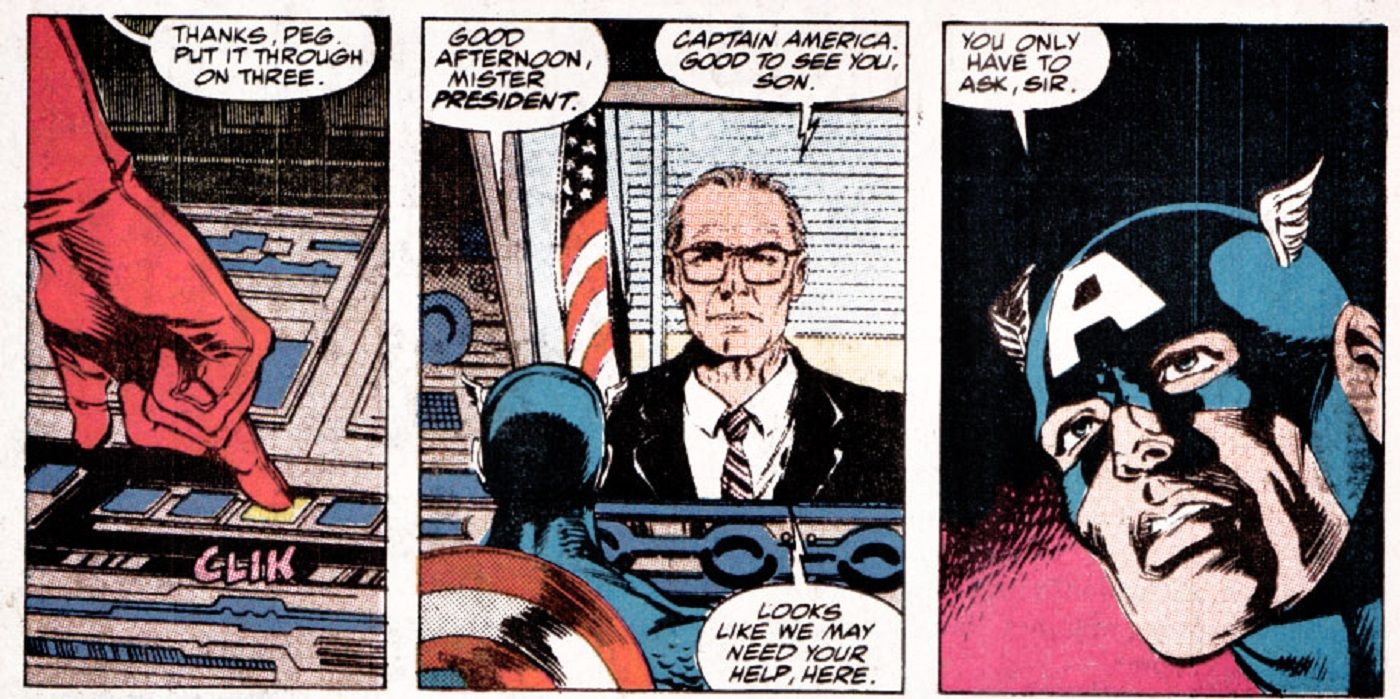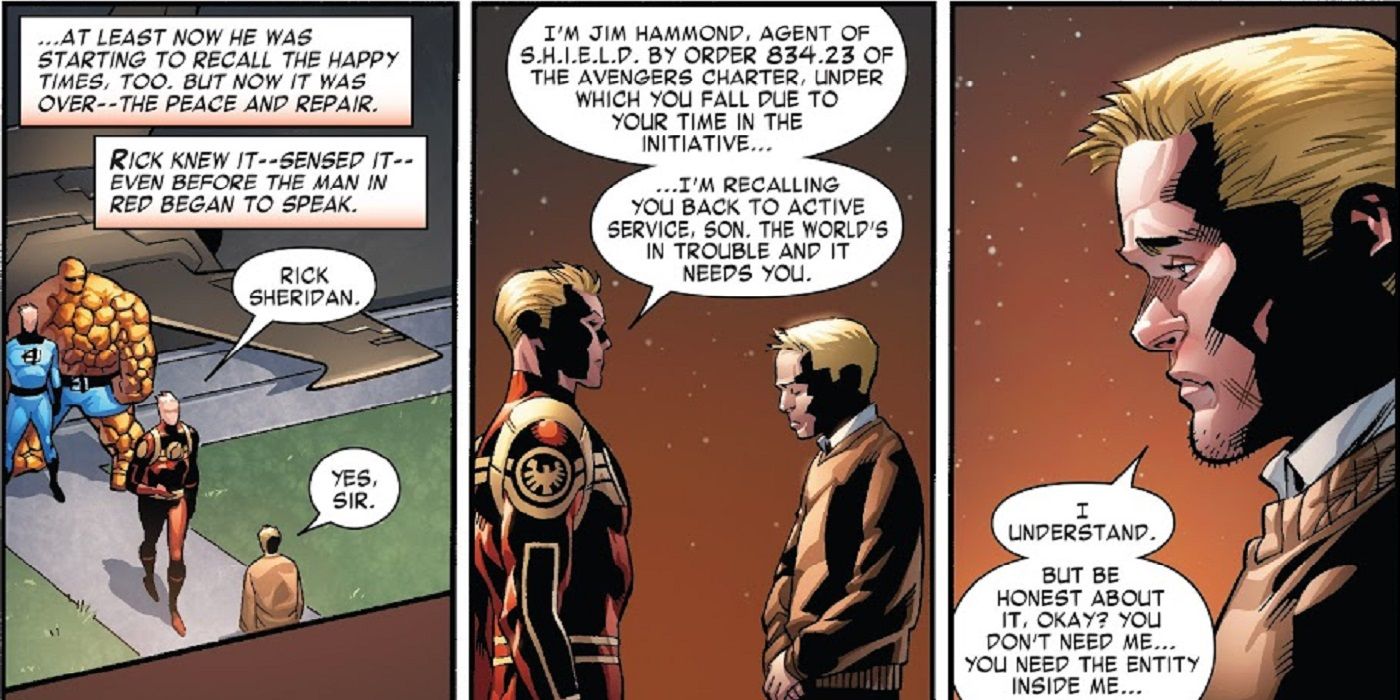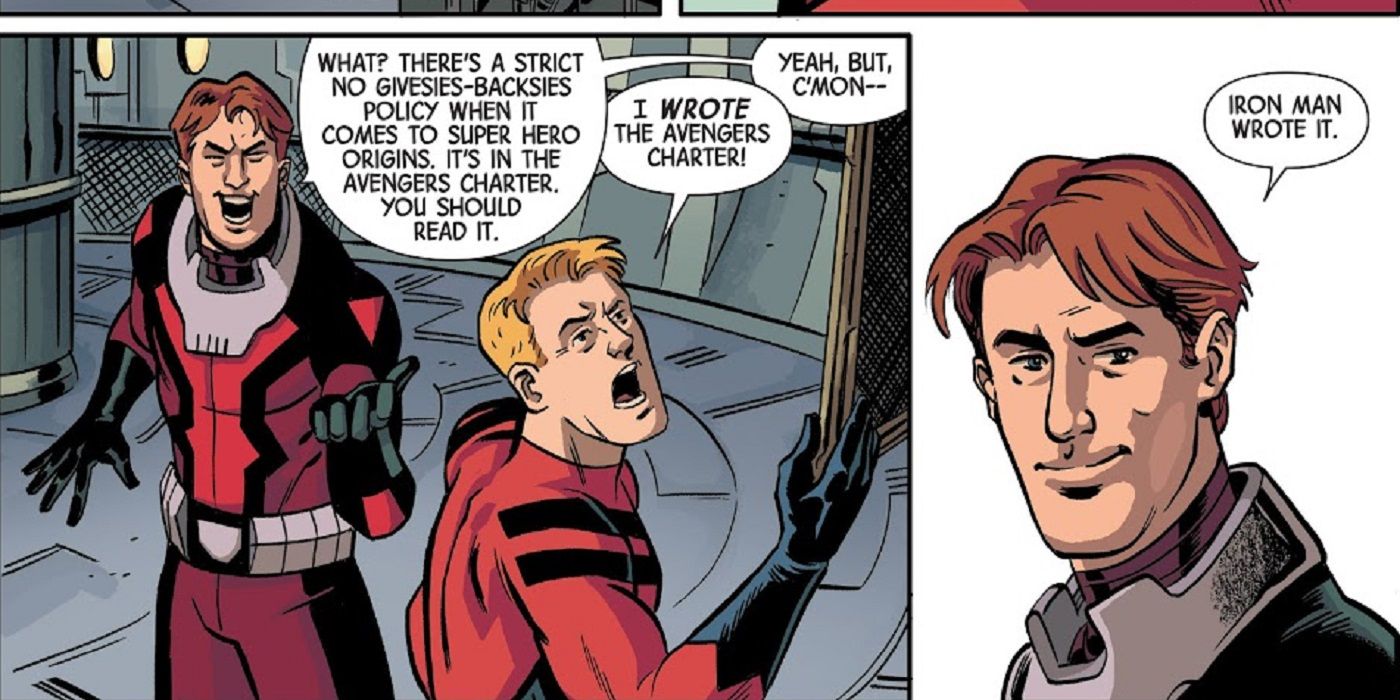It is pretty evident that being an Avenger is one of the coolest jobs in the Marvel Universe for a superhero. You get to be a superhero and fight supervillains, just like you were already going to do, but now you get to fight alongside some of the most powerful heroes in the Marvel Universe! After all, it's always good to know that you have a god backing you up in a fight. You also get to routinely save the world, not to mention the fact that you are loved and admired by the public. And boy, does the public just adore the Avengers! There is a holiday in New York City every year where they give the Avengers a big parade, just for the heck of it!
However, being a member of the Avengers also carries with it some rules, at least when the Avengers were part of the United Nations (which they officially became part of in the early 1990s). At that point, the Avengers adopted a charter with a lot of weird little rules. We are going to assume that that charter is still in effect and, if true, here are some of the weirdest rules that superheroes have to follow as members of the Avengers.
15 MUST BE ACTIVE FOR A YEAR
In the Avengers, there are three states that a given member could be in with the team. He/she could be an active member, a reserve member or an inactive member. Inactive members are just sort of out there and unconnected to the team while reserve members hold more of an everyday role on the team. During Bob Harras, Steve Epting and Tom Palmer's Avengers run, two of the key members of the team -- Black Knight and Hercules, were reserve members who had to replace departing active members.
Well, here's an odd rule for reserve members, "Reserve membership shall be limited to those members who have fulfilled an active term of duty of not less than one year, and who wish to cut back their connections with the group." Oddly enough, Spider-Man was a reserve member despite not fulfilling this restriction at all.
14 UNITED NATIONS ARE IN CHARGE
One of the areas where the Avengers would often have conflict with their charter is the following jurisdiction clause, "The Avengers, as a group, are empowered to act as an agency of enforcement on duly recognized and approved missions in all lands, territories and protectorates of member states of the United Nations, providing that the threat in question is super-powered, extra-terrestrial, extra-dimensional, subterranean, sub-oceanic, or occult, and engaged in an invasion, infestation, limited incursion, piracy, enchantment or any flagrant violation of international law not instigated, sanctioned, or abetted by a member nation."
As you can see, that means that they could easily be restrained from getting involved in situations where they feel they need to be. That is precisely what happened when the United Nations tried to keep them out of a conflict in Genosha (they just blew it off and went anyways).
13 SEVERE BACKGROUND CHECKS
It is normal enough to expect that if you are going to join the Avengers, people are probably going to be a little wary of you. But times have changed a whole lot from the time that Hawkeye went from trying to kill Iron Man to being an Avenger simply by breaking into Avengers Mansion and tying their butler up. Then there was the time Scarlet Witch and Quicksilver made the team after just writing a letter to say, "We're no longer evil mutants, please let us on to the team."
Nowadays, the charter says about new members, "During the probationary period, a special committee consisting of one primary team member, one reserve substitute, and two members of the Avengers support crews shall investigate the candidate's public record for any violations, breaches of trust, or depredations, legal or moral, which may preclude said candidate from assumption of full active status." Yikes.
12 ATTEND ONE MEETING A YEAR
When you become an active member of the Avengers, you naturally suspect that there will be some restrictions on your time. That's the whole point of choosing to be an "Active" member of the team: your willingness to be involved as much as they want you to be. That was the basic concept behind the creation of Justice League Detroit over at DC. Aquaman was irked that most of the big name superheroes barely paid attention to their Justice League duties anymore.
However, it seems a bit much to expect reserve members to pay as much attention, and yet, "Reserve Avengers may attend any regular meeting, but shall be required to attend no more than one per year." What is the point of them attending a meeting during the year?
11 MUST RECORD ALL YOUR CASES
In a lot of ways, it seems like many of these rules were practically designed specifically for Captain America. His personality tended to be rife with details. After the end of the famous Avengers crossover, "Operation: Galactic Storm," when the team returned to Earth, Captain America right away scheduled a lecture about superhero ethics. He was irritated that a group of Avengers killed the Kree Supreme Intelligence during the operation.
So the requirement that "Active Avengers shall be required to log all individual cases into the main computer file, that the entire membership may benefit from the individual's experience" is right up Cap's alley. In fact, it seems like most of the Avengers recordings are done by Captain America. After missions, we bet he's the one who always volunteers to write up the most recent mission.
10 RESPOND OR BE SUSPENDED
While the later charter was a lot stricter in many ways, it was actually a slight improvement on a certain aspect of the original Avengers charter, the one that was just sort of thrown together by original members of the team (we have to wonder how many clauses were added by the Hulk. Can you imagine Hulk sitting down and trying to help write a charter?). In Avengers #7 (by Stan Lee, Jack Kirby and Chic Stone), the Avengers gave Iron Man a mini-court martial over his failure to respond to a call for help.
He had a personal emergency, but that wasn't good enough and he was suspended for a week. Of course, that has no real enforceability when supervillains attack, which they did right after his suspension began ("Oh, I'm fighting them, but I'm just fighting them solo next to you guys!").
9 NEED TO CALL IN RESERVE (OR ELSE)
The newer charter was a lot more reasonable on the whole "Failure to show up" rules, as that is really why the reserve system was introduced. However, once they established the idea of a reserve system, it became a really big deal if you didn't let your reserve know of the situation. Namely, "Active Avengers shall be required to meet all CALLS TO ASSEMBLE. If unable to respond, the active Avenger must notify that specific member's reserve substitute.
"Failure to respond coupled with failure to notify the reserve substitute is ground for immediate suspension of privileges and must be dealt with by a tribunal of all active members." They get that these are superheroes who might not be in a position to get into contact with their fill-in, right? "Sorry, fellow Asgardians. I have to take a break from this Mangog fight to go give Rage a call."
8 MUST HAVE A LEADERSHIP ORDER
As the years have gone by, more and more members of the Avengers have had a chance to become the leader of a given team of Avengers. This is especially true for squads made up of veteran members of the team, as those are typically the precise types that get chosen to lead. So there is sometimes a little confusion when they go into battle to see who is the "main" leader out there.
Well, the charter insists that everyone actually work out a successive chain of command beforehand. This helps avoid any confusion if, say, Captain America gets knocked out right away. "In the event of incapacity or death during action, chairbeingship shall pass in orderly succession among the primary team in a predetermined chain of command arrived at by majority vote among the primary team."
7 ONLY ACTIVE MEMBERS CAN GET YOU KICKED OUT
This is one of the strangest rules on the books. We get the idea that expulsion from the Avengers should be treated like a huge deal, but at the same time, the logic here on the instances when you can expel an active or reserve member seems a bit off: "3a. Conviction for any crime above a misdemeanor. 3b. Deliberate betrayal of Avengers classified information. 3c. Criminal acts of negligence not convicted for, but witnessed by at least one active member."
So, if a reserve member sees you commit a criminal act, that's not enough for an expulsion? For serious? "Okay, so you saw Wonder Man run over a guy with his car, but were you an active member at the time, Black Knight? No? Well, then who cares what you saw. Get back to us when you're an active member again... which will be never."
6 MUST REVEAL SECRET IDENTITY
This is a really harsh one for members, since we live in a world where there doesn't seem to be a company that hasn't been hacked at some point or another. That's the real world, while the fictional Marvel Universe is even worse, as there are literal super hackers out there.
So while we certainly do believe that Tony Stark and the Avengers would not intentionally do anything to let a member's private information get leaked, it would still be a difficult thing for anyone to really trust the Avengers with. This was obviously then proven true when Tony Stark was given the secret identities to a lot of heroes post-Civil War and he promptly had to erase his own mind to keep that info from getting acquired by Norman Osborn!
5 RESERVES STILL GET PAID... A LITTLE
One of the surprising things about the Avengers that really threw Spider-Man for a loop in the early 1980s is the fact that active members of the Avengers are actually paid a weekly stipend of $1,000. That is on top of an unlimited food budget and room and board at a midtown mansion for the active members. That naturally led to Spider-Man changing his mind about being an active member.
Sadly, he tried to get in again during a point where the Avengers were having trouble with the security clearance and he was a bad security risk at the time. Amusingly enough, reserve members also get stipends... $100... a month. Yes, $100 a month. Why is that even a thing? We especially like the idea of the rich heiress, Janet Van Dyne, collecting her $100 a month check.
4 ANSWER ALL U.N. QUESTIONS
One of the odder aspects of the Avengers charter with the United Nations is the fact that the UN security counsel gets a whole lot of access to the Avengers. In the early '90s, it was typically the President of the United States himself who would directly contact the Avengers instead of the United States United Nations representative.
However, the charter makes it clear that "no Avenger may refuse to answer any question posed by a member of that committee, other than those that would reveal that member's secret identity or compromise the security of that member's native country." This never really seemed to come up much in the comics, so it is probably not a big deal, but it is still a rather notable "ask" of its members.
3 CAN BE RECALLED TO ACTIVE DUTY
This is a strange one, because it is not about the Avengers' United Nations charter. Rather, it seems to be an issue regarding the Avengers Initiative set-up, which launched following the events of Civil War. The weird thing about this is that the Avengers Initiative pretty much died down following Norman Osborn's rise to power and the various Avengers Initiative teams turning against him.
However, just a couple of years ago, the original Human Torch used a clause that says that a former Avenger can be forced back to duty in an emergency. Oddly enough, said recall could be done on the behalf of S.H.I.E.L.D., and not even an active Avenger! Now that S.H.I.E.L.D. is no longer a part of the Marvel Universe, however, this is probably null and void.
2 CAN TAKE PRISONERS
This clause is an interesting one, because it is less about what the Avengers members cannot do and more about the surprising things that they apparently are allowed to do, namely the fact that it seems like the Avengers have rather broad powers when it comes to the imprisonment of supervillains.
As noted, "In the event that conventional imprisonment proves inadequate for a given criminal, the Avengers shall be allowed to hold said criminal in a manner they see fit, provided that a full report of said method of imprisonment is given to the proper law enforcement authorities." So all they need to do is give notice and they sure seem like they can do whatever they want with prisoners. "Hey, Swordsman, you're never going to see daylight."
1 NO BACKSIES ON IDENTITIES
Hank Pym is famous for having gone through a number of superhero identities over the years. Before he seemingly passed away in the Avengers graphic novel, The Rage of Ultron, Hank had fairly recently gone back to his Giant-Man identity after briefly calling himself the Wasp, in honor of the assumed-dead Janet Van Dyne. In Ant-Man Annual #1, Scott Lang reflected upon one of the last times that he hung out with Hank Pym.
Hank needed access to Scott's Ant-Man helmet (which once belonged to Hank) and Scott gladly helped him out, but also wanted to make sure that he acknowledged the Avengers charter rule about "No backsies" when you give your superhero identity to another superhero. It's obviously a joke, but we have decided it's worth counting as a rule.

